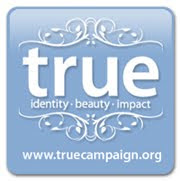Now that you have chosen a grouping, the next obvious question is, "to do what?" Well, survive, I would postulate. More specifically, thrive. Grow. And particular to my point here: raise children with special needs.
I began thinking about this a few days ago when we began "Head-ButtGate". No, I'm not joking, but actually I am being a bit ironic, since that's how I cope best with life. I'm referring of course to Adam, and the drama that some of his phases can produce. We had "NoseGate" last year in Durham, when his prolific sneezes made his taxi driver squirm and nearly got me carting him to school myself (that was resolved satisfactorily for everyone involved. And Kleenex loves us.)
This year it's "Head-ButtGate", appropriately labelled because Adam likes to play a "game" where he taps his head against yours. It's sweet really, harmless--unless, that is, you are not prepared for it, or he's really having fun. Then you'll be finding a cold compress and hitting the Tylenol. If you are an adult you will survive. If you are one of the children in his class at school, you will cry and the teachers will get mad at Adam. Then, if you are one of the teachers, you will send a few pointed letters home to mum, with quite legitimate intentions to protect the other children and get Adam to stop a distressing behaviour. Then, if you are me, you will blog. Oh, just kidding.
I did get that letter, and I did write back, but I'm very happy about my letter because it clearly expresses all the facets that we deal with where any of Adam's behaviours are concerned. Do I like his negative tendencies? No. Do I encourage them? I try not to. Do I want him to continue to behave that way? Goodness, no!! However, is he being malicious? Again, no. There are reasons why Adam does what he does, and these have largely to do with the fact that:
A) he has Autism, and
B) he is non-verbal.
I am not excusing him, just trying to understand why he does what he does so that I can help him to find what he needs in more appropriate ways. I think he needs a huge amount of sensory input and therefore seeks out sensory overload in certain ways. Swinging for hours on the swings, whacking his head against a door or wall, bouncing on the trampoline...these are all things that give him some sort of kick, but he needs them at very high intensity to feel the stimulation. High enough to make any of us sick, whereas Adam will laugh.
I know he also needs to communicate, especially with his peers. And right now the amount that he does that is extremely little. I would say he wants to communicate, but doesn't know how in socially acceptable ways. He does look at his peers, he does smile at what they do now and again. But to speak to them he would tend to put his hand on their mouth, which you may remember from a few days ago makes some of his pals go off their lunch! Or, he will butt his head against theirs, if they are in a certain proximity and position in relation to him. Now the sad thing is, for him to butt another pupil's head means that he's come close enough to them to really interact. And then he goes and gives them a tap and it's all over. This is forever how it is with Adam, how it commonly is with Autism in general: the conditions are right, the scene is building up to something "normal" and great happening...and then it all goes wrong.
The reason why it goes wrong? Well, Adam doesn't know how to speak yet, so he can't say "I like you" or "I like the game we are playing." He taps his head against the other pupil's head instead. Then, to him, he gets an angry/upset reaction and is made to sit on the time-out chair or some other punishment. He is isolated, which is the opposite of what he was going for in the first place. It is a shame, and yet the whole situation is totally understandable. I can't speak for the rest of the Autistic world, but I sense it's a similar thing--the ability to respond to a social situation is diminished; the person with Autism can't cope with the stress of not knowing what to do so they react "abnormally."
So. You can't head-butt (even if that's not really what you are doing), you can't not punish it, you can't excuse the behaviour, you can't beat it out of him. So what do you do?
I try to fill the need he's trying to fill himself. I try to give him words to say in that situation, and hope that with repetition he will learn to do it for himself. I try to show him physical gestures that are appropriate to the situation that he can use to express himself. And I turn to others who can help him learn these things, and teach me how to teach him as well. This is where the *blank* comes in, obviously.
I found myself feeling grateful for each person who looks after Adam, teaches him, works with him, spends time with him, makes an effort to communicate with him, pushes him on the swings so I can sit, and yes: every person who has taken a head-butt for the team. I know we are all on a journey, and I am grateful for my *blank* who most certainly help us to survive.







2 comments:
I've been thinking along the same lines this week...for different reasons but same conclusion - Hooray for the blanks!
I agree...what was your thinking about? We need a better way to talk!! Skype??! :)
Post a Comment